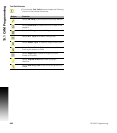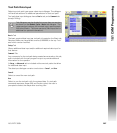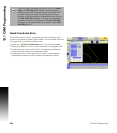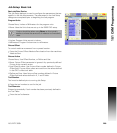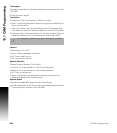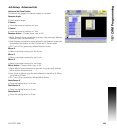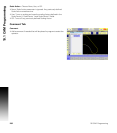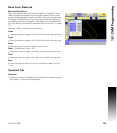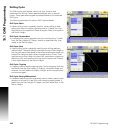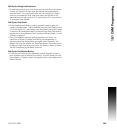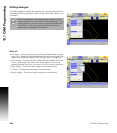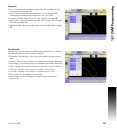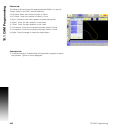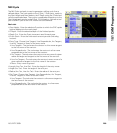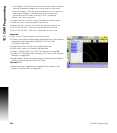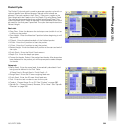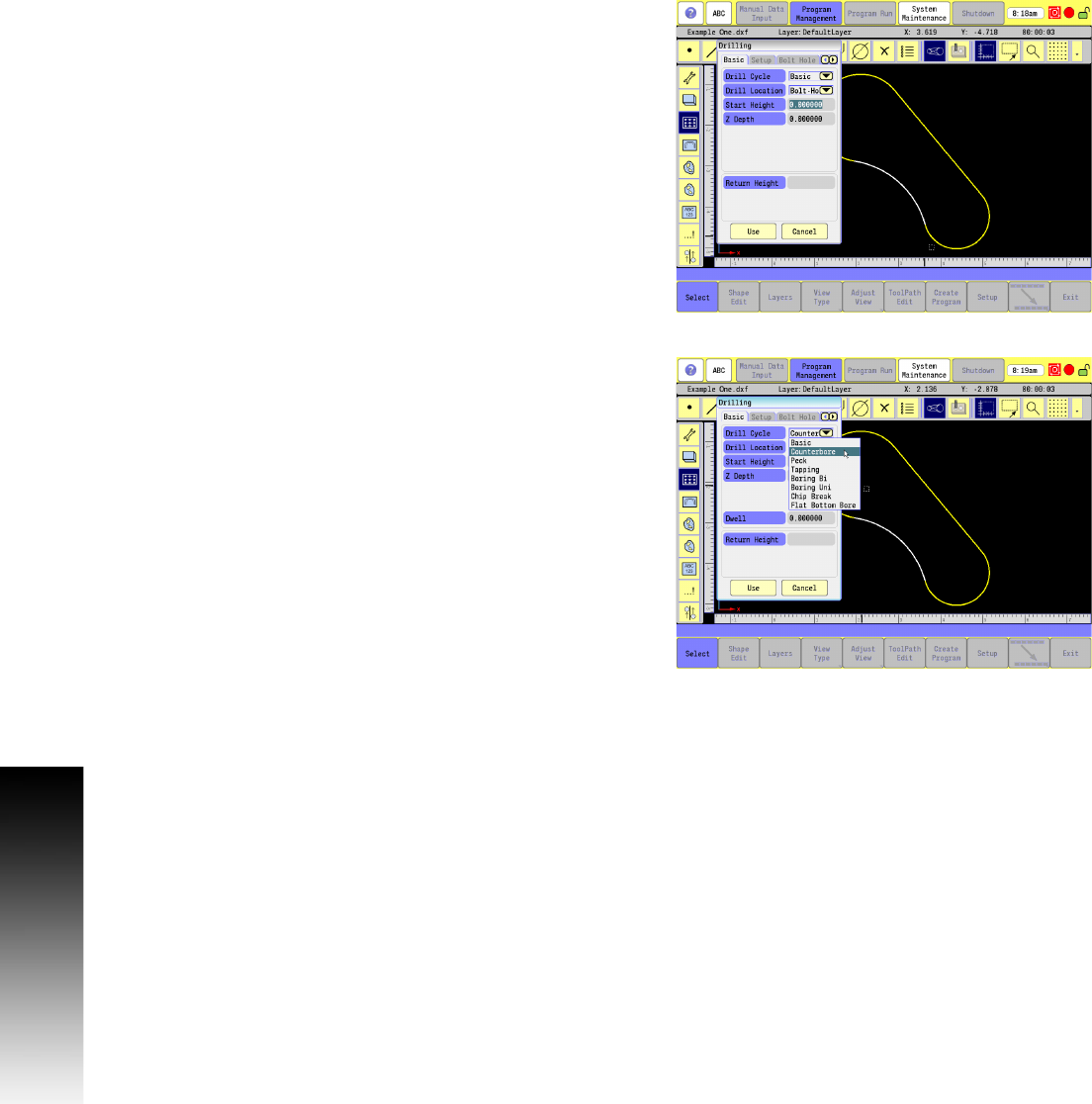
294 10 CAM: Programming
10.1 CAM Programming
Drilling Cycle:
The Drilling tool path defines a drill cycle type, location, and
parameters for drilling. Certain parameters apply only to specific
cycles. These parameters appear as needed based on the selected
Drill Cycle.
The following describes the various Drill Cycles available.
Drill Cycle: Basic
A basic drilling cycle is generally used for center drilling or hole
drilling that does not require a pecking motion. It feeds from the
Start Height to the specified Z Depth at a given Feed, then rapids to
the Return Height.
Drill Cycle: Counterbore
A counter bore cycle is generally used for counter boring. It feeds
from the Start Height to Z Depth, dwells for specified time, then
rapids to the Return Height.
Drill Cycle: Peck
A peck drilling cycle is generally used for peck drilling relatively
shallow holes. The peck drilling cycle feeds from the Start Height to
the first peck depth (calculated so that all pecks are equal and do not
exceed the maximum peck distance programmed in Peck). Then
rapid retracts to Start Height (to clear chip), rapids down to previous
depth less .02", and continues this loop until it reaches the Z Depth.
It then rapid retracts to the Return Height.
Drill Cycle: Tapping
A tapping cycle is used for tapping holes. During a tapping cycle the
tool feeds from the Start Height to Z depth; the spindle stops and
reverses; the tool feeds to the Return Height; and the spindle stops
and reverses again.
Drill Cycle: Boring Bidirectional
A bidirectional boring cycle is generally used to make a pass in each
direction on a bore or to tap with a self-reversing tapping head. It
feeds from the Start Height to Z depth, and then feeds back to the
Return Height.



